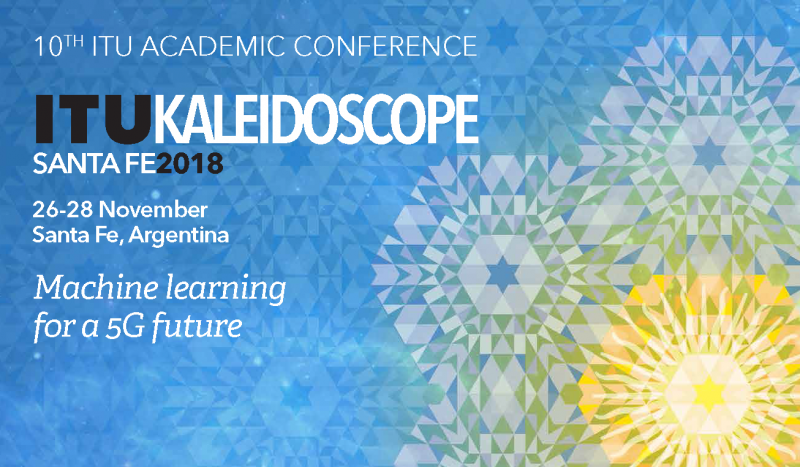
Machine Learning for a 5G future, 26/28 November 2018 , Santa Fe (Argentina)
from: ITU
Kaleidoscope 2018: Machine learning for a 5G future is the tenth in a series of peer-reviewed academic conferences organized by ITU to bring together a wide range of views from universities, industry and research institutions. The aim of the Kaleidoscope conferences is to identify emerging developments in information and communication technologies (ICTs) and, in particular, areas in need of international standards to aid the healthy development of the Information Society.
Machine learning shows promise to assist smarter use of network-generated data, enabling ICT network operators and service providers to adapt to changes in traffic patterns, security risks and user behaviour. This will also affect ITU standardization work in fields such as coding algorithms; data collection, storage and management; and network management and orchestration.
Kaleidoscope 2018 calls for original scientific papers addressing advances in research on machine learning and artificial intelligence techniques for future communication networks, covering all aspects of network design, management, implementation and optimization. This year's conference will assist ITU standardization experts in capitalizing on machine learning in their preparations for the 5G era and beyond. Authors of outstanding papers will be invited to contribute to the work of ITU-T Focus Group on Machine Learning for Future Networks including 5G.
A prize fund totalling CHF 6 000.- will be shared among the authors of the three best papers, as judged by the Steering and Technical Programme Committees. In addition, young authors of up to 30 years of age presenting accepted papers will receive Young Author Recognition certificates.
